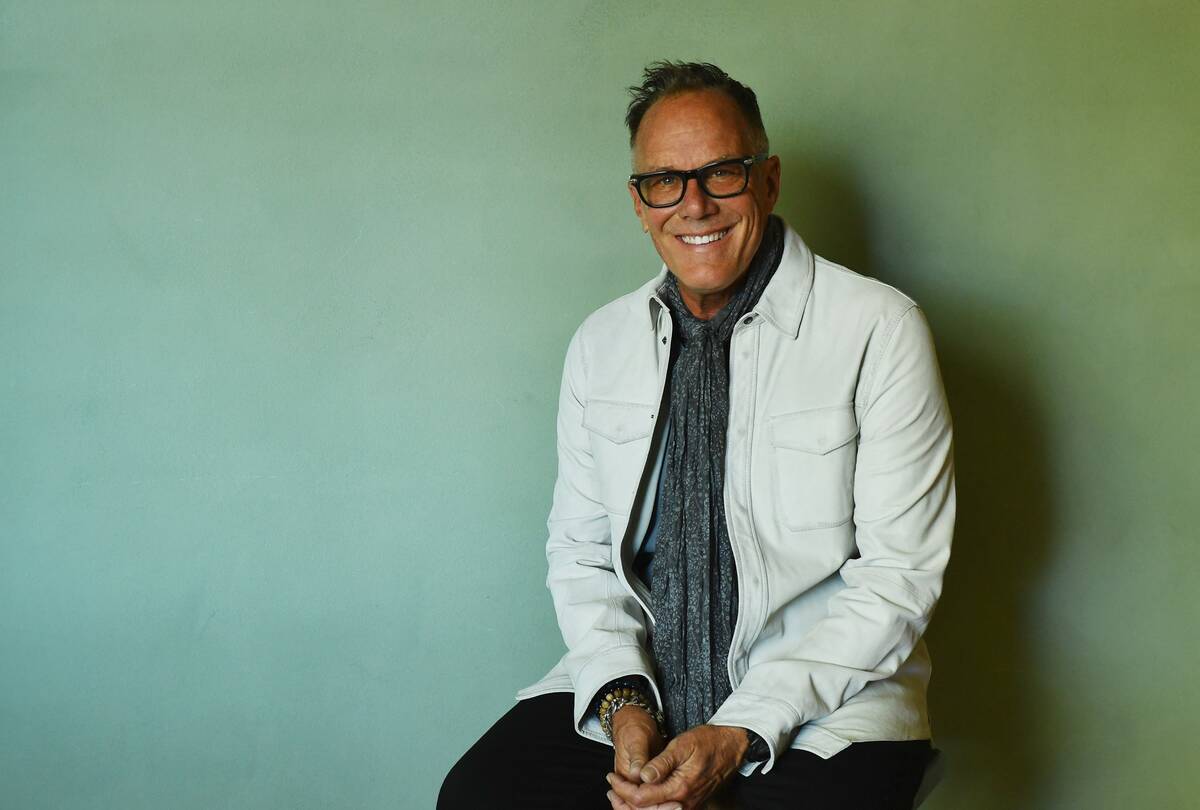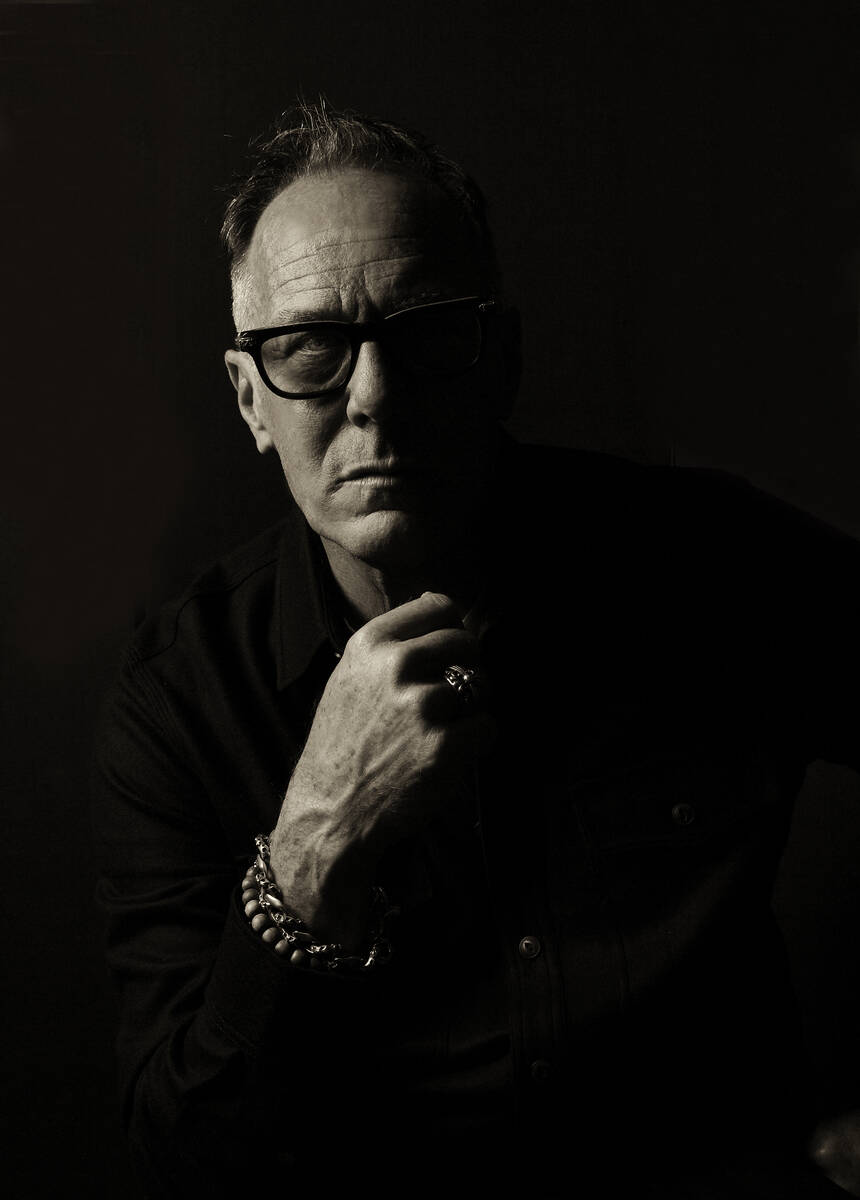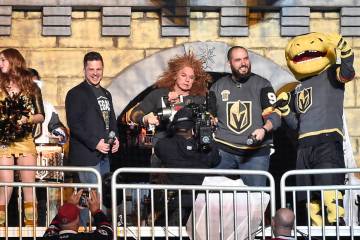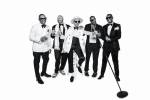Meet Las Vegas’ real-life Ray Donovan
Rick Barnes is where he’s most comfortable, one-on-one, at Helio’s Cigar Lounge, tucked away in a strip mall on Fort Apache Road. He’s smoking a Fuente Opus X, a fine cigar made in the Dominican Republic.
As he lights up, Barnes is talking about himself. It’s not his favorite topic. Barnes has been a life coach, toiling anonymously with famous clients for more than two decades.
To those who know him, especially to those clients, Rick Barnes is a real-life Ray Donovan.
Like the go-to problem solver for show business’s elite in the Showtime series, Barnes is “a fixer.” He’s called in to provide one-on-one alcohol and drug addiction counseling, and also general wellness, to prominent people in tough times.
In most cases, these clients have been rock stars, A-list movie stars and pro athletes who need help but are not in a position, equipped to or even interested in finding treatment.
“I have to remind myself, this is not my life, this is theirs. I am along for the ride,” Barnes says, gazing through his designer glasses. “I have to identify problems that exist in that work, specific to that world. I have to work past ego, narcissism, the gaggle of yes-men too afraid to speak the truth.”
An unconventional career path
It’s not a job with a traditional career trajectory, and his path to the profession has been circuitous and unconventional.
Barnes, who moved to Las Vegas in 2019, describes his education in the field as “trial by fire, listening, working with people on problems and staying very centered.” He is a Certified Addiction Recovery Coach, which required 60 hours of training from Recovery Coach University in New York.
The 60-year-old Barnes grew up in Tucson. His dad was a building contractor and his mom was a computer tech at the University of Arizona. Barnes was cast in school plays and enjoyed making short films on 8-millimeter film. He enrolled at the University of Arizona to study architecture, switched to film and TV, then packed and left for New York City.
Within a year he had a SAG card, attended an acting conservatory and booked several commercials. Remember the New Coke campaign? Barnes does.
“I was in that one,” he says, laughing. “It aired two times before it got yanked.”
He had many unbilled appearances as a “day player” on daytime dramas.
Barnes moved to L.A. with hopes his career would take off. But he never gained momentum, and he started bartending and working as a production assistant.
And he partied hard.
One January night in 1991, Barnes was in Palm Springs partying with friends at a hotel. He stayed awake for 48 hours, drinking heavily, “snorting a ton of coke and smoking heroin.” He passed out, and his fellow partiers called 9-1-1 “then packed up their (stuff) and left.”
A 90-day stay at an outpatient program at a clinic in Beverly Hills followed.
Over the next 20 years of his own recovery work, Barnes found he had an inherent ability to connect with those who were struggling, who also happened to be high-achieving — those ripe for massive collapse, without intervention.
An ask that changed everything
After about 10 years of recovery, Barnes answered a life-altering request.
“I had a rock-star friend who was out of rehab, who asked if I wanted to go on tour with him,” Barnes says. “He says, ‘I just need a sober guy on tour with me.’ I had no training other than being 10 years sober. But sober rock stars and actors, I knew. There were many in the Hollywood recovery community.”
Jack Osbourne was once part of that community, having been clean and sober since April 21, 2003.
“When I was getting sober, the name ‘Rick Barnes’ was very much in the L.A. music scene. He had a lot of friends,” says Osbourne, son of Ozzy and Sharon Osbourne. “He was coaching my dad when he was on tour. He spent a lot of time traveling with him and made a name for himself as the guy you brought on the road with you.”
In 2018, Barnes was hired to come to Las Vegas for a high-profile assignment.
“I was hired to work with an artist who had a residency on the Strip, and I was here long enough to see the full city, not just the Strip,” Barnes says. “I grew quite fond of this town.”
Barnes would move to Las Vegas a year later, just before COVID, home base for his life and career. In his rare job, he is available with scant notice to jet off anywhere in the world.
Barnes’ aptitude is invaluable at the highest level of the entertainment industry. He often keeps world tours and major motion pictures running on schedule. He’s not cheap. Barnes charges a day rate for 24/7 “companion” coaching, which is in fact spending every waking hour with a client. He has also been available for hourly in-person, or virtual coaching.
Barnes does not quote rates until he knows how much of his time is needed, if he needs to arrange an intervention, transport his client to a rehab facility, after-care, case management and other variables (specifics are at apexcoachingpartners.com).
While not disclosing what he makes annually, Barnes does allow that he leads a comfortable life. He does not dispute a story in Forbes reporting top sober companions can make $4,000 a day. And he is certainly at the top of his field.
Ronnie Wood of the Rolling Stones is the rare superstar who has actually specified publicly Barnes’ role in his life. Wood outlines his cocaine, heroin and alcohol addiction in his autobiography “Ronnie.”
It took Wood, who once said, “I would do anything to get my hands on a crack pipe,” three years to get clean.
“Rick Barnes was drafted in to support me and keep the monster at bay,” Wood writes in his 2007 tome. “My concentration was kept at full tilt by the support of Rick, who programmed me to live, act and focus for myself. Gently coaxing me (in an environment he could connect with) to enjoy the madness and appreciate the peace of mind I could find. This pace brought with it a new dexterity on the guitar and (paint) brush. My two great passions.”
Barnes is an independent contractor, having formed his new company, Apex Coaching Partners, this past January. He sits on the board of directors for SilverBell Coaching, which provides services for crises of any nature, not just alcohol and drug dependency. Founded by Natasha Silver Bell in 2012, the company has become an international destination for those seeking specialized assistance.
“The most discreet of the elite trust Rick’s energy,” says Silver Bell, who serves on the board of the National Council on Alcoholism & Drug Dependence (NCADD) and is an international leader in drug and alcohol dependency treatment. “Ninety percent of communication is nonverbal. It’s not what you’re saying; it’s how you’re saying it. Rick isn’t boastful or loud. He doesn’t try to impress you — while he could, easily. He listens and observes, consistently providing clients with incredible insights and a safe place to heal.”
Barnes recalls a moment from the early 2000s. He’s in a lineup of contemporary music superstars at London’s Hyde Park. These were some of the biggest recording artists at the time. They were all waiting to meet then-Prince Charles, minutes before a concert for his Prince’s Trust charity, a benefit to help young people in the U.K.
“I was there, helping someone,” Barnes says through a thread of smoke. “There were some questions about protocol when you’re meeting a member of the Royal Family.”
His client was about to perform for more than 100,000 jubilant music fans. This person has sold millions of singles and albums, but was more nervous about meeting the prince — than her upcoming act.
Dressed in a shimmering gown, the singer turned to Barnes and asked, “What do I call him?”
“How about, ‘Dude’?” Barnes answered.
The star was speechless. She then elbowed Barnes and said, “I can’t believe you said that.”
“Call him, ‘Your Highness,’ ” Barnes said.
The prince made his way down the line. The star was first. She was perfectly OK, “It’s a pleasure to meet you, Your Highness.”
The prince thanked the performer. He then moved to Barnes, who was wearing black leather pants, a white-collared shirt and a black V-neck cardigan.
“Thank you for being here,” Charles said, glancing up and down at this unfamiliar figure.
“He probably, in his mind, was asking, ‘Who the (expletive) is this?’” Barnes recalls. “Normally, I would not have done that, but I needed to put her at ease. I stood by her side.”
Ten days before moving to Vegas, Barnes had been diagnosed with prostate cancer. He’d been living in Maui for five years, taking a needed break from international travel. He’d been building custom furniture (among his many latent talents), while maintaining a couple of big-name clients.
Now it was time to rebuild his life.
“The first thing I did when I got to Las Vegas was to build a medical team,” Barnes recalls. “My plans for restarting my career went out the window.” He underwent major surgery, nearly wiping out his savings. His health improved enough by June of 2020 to return to his career.
A world of coaching
Back in Vegas after nine months on an especially challenging assignment, Barnes is at Helio’s. His trip was a success, he said, with the client in recovery and in therapy.
But the truth is that in Barnes’ universe, not every assignment works out, and not every client embraces the process.
Years ago, Barnes was called by an A-list film star in New York who needed immediate help. The next morning, Barnes rushed to the Los Angeles International Airport. He was at the gate, ready to board, when he glanced at a monitor flashing with breaking news on CNN.
“There was a live shot of the fire department taking his body out of his house,” Barnes says. “It was horrible. If I’d left the moment we ended the call, maybe he wouldn’t be dead. I had said, ‘I’ll be there tomorrow,’ I might have been there in time. I was heartbroken. That is the reality of what I do. His death reminded me of how lucky I was that I wasn’t dead, too.”
After a brief silence, Barnes’ phone rings, and the caller ID shows the name of an internationally famous rock star.
“Gimme a minute,” the coach says, who is on call once again. “I gotta take this.”
John Katsilometes’ column runs daily in the A section. His “PodKats!” podcast can be found at reviewjournal.com/podcasts. Contact him at jkatsilometes@reviewjournal.com. Follow @johnnykats on Twitter, @JohnnyKats1 on Instagram.






























